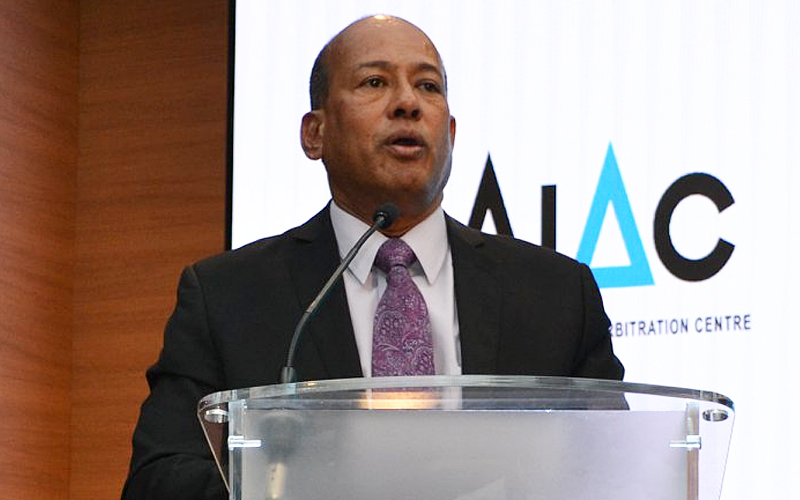
By Walter Sandosham
Life appears to have come full circle for Asian International Arbitration Centre (AIAC) head, N Sundra Rajoo.
The events surrounding this case make good reading and provide some insight into the exercise of power by high-ranking public servants.
In summary, Sundra, who as AIAC director has diplomatic immunity, had claimed he was wrongfully detained on Nov 28, 2018 at KLIA.
The matter was challenged in court, with the Federal Court ruling there were no merits in his arrest and detention.
In the interim, he ceased to be the AIAC director.
Two personalities stand out in this unpleasant episode – the then MACC chief commissioner Shukri Abdull and former attorney-general Tommy Thomas, both of whom assumed office after the 2018 change in government.
Pursuant to the Federal Court decision in his favour, Sundra initiated a civil suit on Oct 15, 2021 against Thomas and 12 other parties over his “wrongful arrest and prosecution” in relation to an alleged breach of trust as AIAC director.
It was recently reported that the suit was discontinued on March 8 after a settlement was reached with the government, on terms which were not disclosed.
In a surprising turn of events, it was also reported (almost immediately) that Sundra has since been re-appointed AIAC director, complete with the diplomatic immunity that goes with the position.
Notably, both Shukri and Thomas left government service long before the settlement.
Humiliatingly, it appears that the government has had to eat humble pie in agreeing to the settlement.
If there were no merits in Sundra’s RM3.8 million suit, it would be reasonable to assume that the government would have taken him head-on in court.
Having served the MACC as an independent oversight panel member, I am personally deeply saddened that the independence and integrity of the MACC is being questioned once more because of this case.
On what basis were charges preferred against someone accorded diplomatic immunity in the first place? Was it simply a case of “shooting from the hip” to challenge the limits of legal immunity?
It is doubtful that any answers will be forthcoming from Shukri or Thomas, who respectively headed the MACC and the Attorney-General’s Chambers (AGC) at the time, rendering the independence and good sense of both institutions compromised.
In a recent case involving investigations into an ex-prime minister, both these bodies came out strongly to issue statements asserting their impartiality and independence.
Can the man in the street be blamed for taking these statements with a pinch of salt?
All this comes hot on the heels of comments made by Chief Justice Tengku Maimun Tuan Mat about the “timing” of the MACC’s investigations into Justice Nazlan Ghazali, its “failure” to follow “protocol” and allegations of “collateral” purposes behind the investigations. Those comments were also a backhanded swipe at the AGC.
To date, neither the MACC nor the AGC has addressed her statements.
The law and institutional reform minister should sink her teeth into this and take appropriate action to restore the dignity of these two institutions.
The Head of AIAC should be commended for his doggedness in addressing the injustice and high-handedness he suffered in relation to his removal from office and the authorities’ disrespect for his immunity. - FMT
Walter Sandosham is an FMT reader.
The views expressed are those of the writer and do not necessarily reflect those of MMKtT.



No comments:
Post a Comment
Note: Only a member of this blog may post a comment.